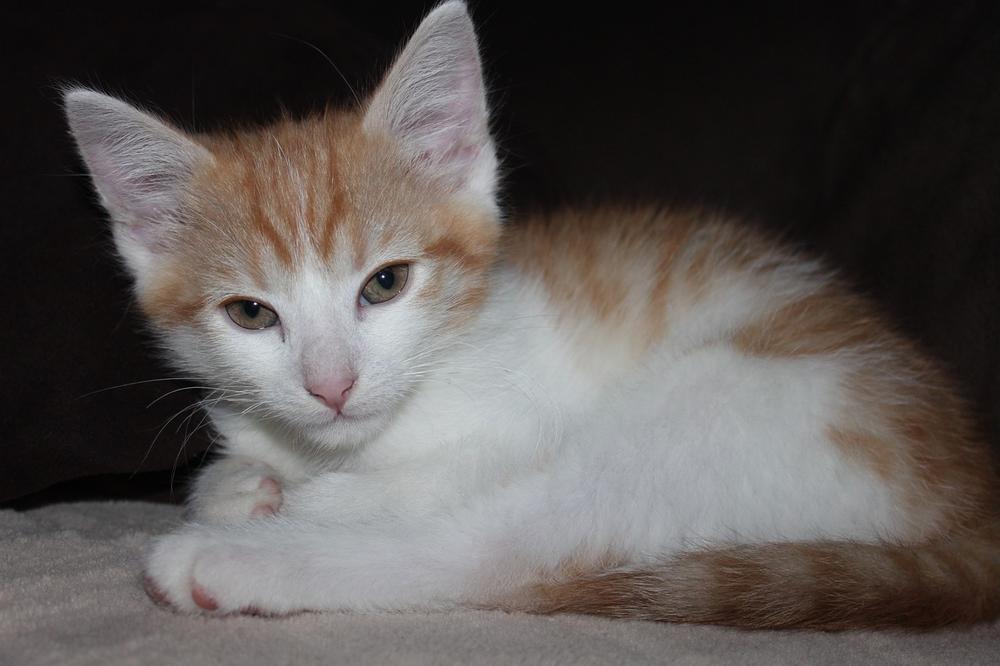Kitten Crying for Mom: Everything You Need to Know

So, you've got a little furball that just won't stop crying for its mom.
We've all been there, haven't we?
That heartbreaking sound can really tug at your heartstrings and make you feel like you're going crazy. 🐱
But guess what?
You're not alone in this struggle.
I know exactly what you're going through, and I'm here to help.
In today's guide, I'll give you the answers you need to understand why your kitten is crying and how long it might continue.
Trust me, you don't wanna miss out on this.
Let's get started now!
When and Why Kittens Cry: Several Reasons and Stop Time

- When kittens cry, it's usually because they're hungry. They're basically saying, "Hey, I need some food over here!"
- Sometimes, kittens cry because they're scared or uncomfortable. Maybe there's a loud noise freaking them out, or they don't like the new place they're in. Or maybe someone is handling them too rough.
- Kittens are attention seekers - they want you to notice them and give them some love. So, they'll cry to get your attention, whether they want to play, be petted, or just hang out with you.
- If kittens are separated from their mom, they'll cry because they miss her warmth and security. They might even call out for their mom or their siblings, hoping to find them.
- When kittens can't find the litter box, they might cry because they desperately need to use it. They're still learning, so it's understandable if they get a little confused sometimes.
- Any changes in their routine can mess with kittens' emotions and make them cry. If they move to a new home or lose a furry friend, it can be really stressful for them.
🐱 Remember, crying kittens are already feeling distressed, so you should figure out what they need and show them some reassurance.
Main points I'll expand upon further down this article:
- Proper nutrition is essential to prevent excessive crying in kittens.
- Establish a regular feeding schedule and provide ample wet food.
- Kittens should be fed when hungry to avoid crying.
- Ensure warmth and comfort to alleviate distress and soothe kittens.
- Use comfort items like stuffed animals or heated blankets.
- Create a warm and safe environment with a heating pad under cloths.
- Socialization and playtime can divert a kitten's attention and reduce crying.
- Keep kittens with their mother until they are 12 weeks old to prevent prolonged crying.
- Avoid sudden changes in routine or environment to minimize stress.
- Monitor changes in behavior and seek immediate medical attention if necessary.
Your Kitten Is Hungry
Kittens cry for a reason, and hunger often tops the list.
To prevent their incessant meowing, you need to fuel them with the right nutrition.
Establish a feeding schedule that works and offer plenty of wet food throughout the day.
While adult cats can stick to a strict timetable, hungry kittens should be fed on demand. Now, here's what you need to know:
Properly caring for these little ones is crucial.
It takes experience or a genuine commitment to provide the care they deserve, especially when it comes to feeding, so don't take this responsibility lightly.
Avoid the crying game by being a responsible caretaker.
To ensure that your kitten is well-fed and happy, establishing a proper feeding schedule is essential.
However, when it comes to hungry kittens, they should be fed on demand.
As a responsible caretaker, I've written a comprehensive guide on how long a mother cat can be away from her newborn kittens.
This article provides valuable insights and answers the questions you may have.
If you're curious about this topic, I highly recommend checking out my blog post, "How Long Can a Mother Cat Be Away From Her Newborn Kittens".
Discover the information you're looking for and ease any concerns you may have.
Your Kitten Is Lonely
Kittens love having friends around.
They hate being alone or feeling lonely.
So, spend time with your kitten and give them the interaction they crave.
Playtime and toys can make loneliness disappear
Want to keep your kitten from feeling lonely?
Play with them. Get some fun toys, like a string or paper balls, and enjoy play sessions together. It's not only great exercise for them but also keeps their mind active.
Keeping kittens warm is super important
To help a lonely kitten feel better, make sure they're cozy and warm.
Give them stuffed animals or heated blankets to snuggle up with.
If the mom is coming back, put the kittens in a cardboard box with a heating pad and cover it with cloths.
Bring the kittens inside and wrap them in a thin blanket or towel on a low-heated pad.

This makes them feel safe and secure, so they won't be as upset.
Lonely kittens often cry a lot because they want company.
By giving them attention, playing with them, and making them comfy, you can make them happy and less distressed. They'll know they're loved and taken care of.
Learn more: If you're curious about when kittens start to calm down and how to soothe a hyper kitten, I've got just the thing for you. Check out When Do Kittens Calm Down for all the answers you need. Happy reading!
But what if your kitten's crying isn't just due to loneliness?
In fact, it could be a cry for help or a sign of something more serious.
Don't worry, though... I'm here to tell you what signs to look out for and when to seek veterinary attention.
So, let's dive into the possible reasons behind your little furball's tears and ensure their well-being...
Your Kitten Is in Pain
Is your kitten in pain?
Look out for these signs:
- Crying or whimpering loudly - a clear cry for help.
- Distress or injury - obvious signs of trouble.
- Vacant appearance and fatigue - looking tired and spaced out.
- Lethargy or lack of energy - no spark left in them.
- Refusing to eat or drink - loss of appetite, not good.
- Avoiding touch or handling - wanting some space.
- Restlessness or pacing - can't settle down.
- Increased aggression or irritability - lashing out unexpectedly.
- Hiding in unusual places - seeking solitude.
- Sudden changes in behavior - something's off.
If you spot any of these signs, take action right away.
Don't waste time, reach out to your vet ASAP.
Acting early is crucial for your kitten's health and happiness.
And now, I want to share some helpful tips on how to address constipation or difficulty in passing stool, which may be causing your kitten to cry for its mother...
Your Kitten Needs to Poop

Here's how you can help your little kitten with their pooping:
- Have a regular schedule for the litter box. This way, they'll know when and where they should go potty.
- Gently massage their lower abdomen in circles to get those bowels moving. Use a soft towel or your fingertips to do this.
- Some mom cats aren't great teachers when it comes to using the litter box. So, it's up to you to gently place them inside multiple times a day and show them how it's done.
- Make the litter box smell like pee. Yep, that's right. Leave a small amount of the mother cat's urine in there so they understand what it's for.
- Give them incentives! When they successfully use the litter box, reward them with treats and catnip. Show them that it's a good thing to do.
- Don't worry if they meow while doing their business. It's just part of the learning process. Be patient and keep encouraging them.
Ensure your kitten maintains regularity and forms beneficial lavatory routines by implementing these suggestions. 😺
And that wraps up today's article.
If you wish to read more of my useful articles, I recommend you check out some of these: Pregnant Cat Keeps Meowing, Why Wont My Cat Stop Meowing in Her Cage, Why Does My Cat Want Me to Watch Her Eat, I Just Adopted a Cat and It Wont Stop Meowing, and Why Do Cats Wander Off for Days
Talk soon,
-Sarah Davis